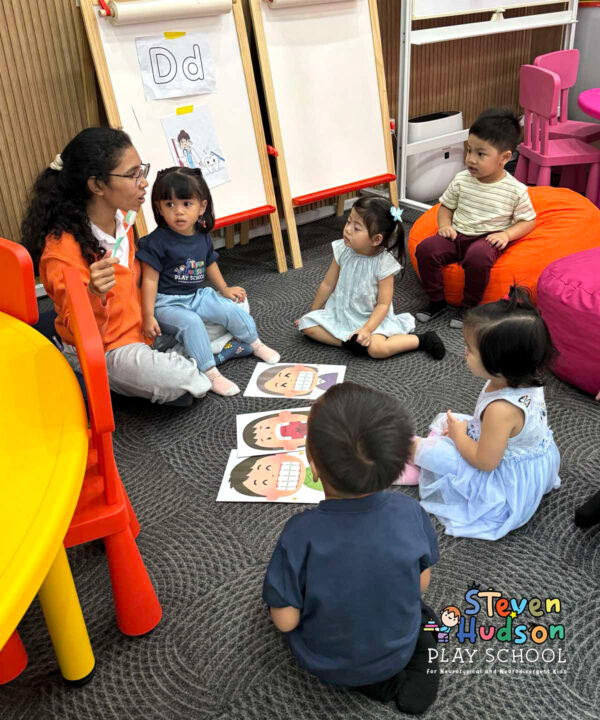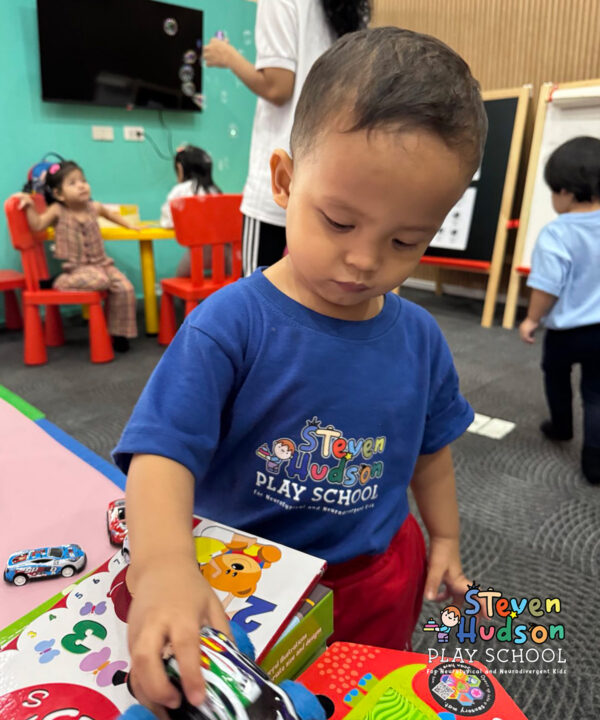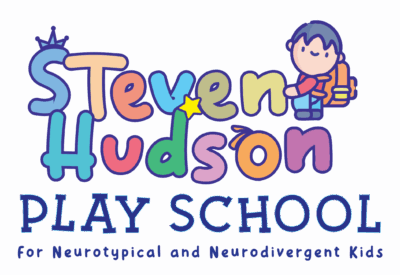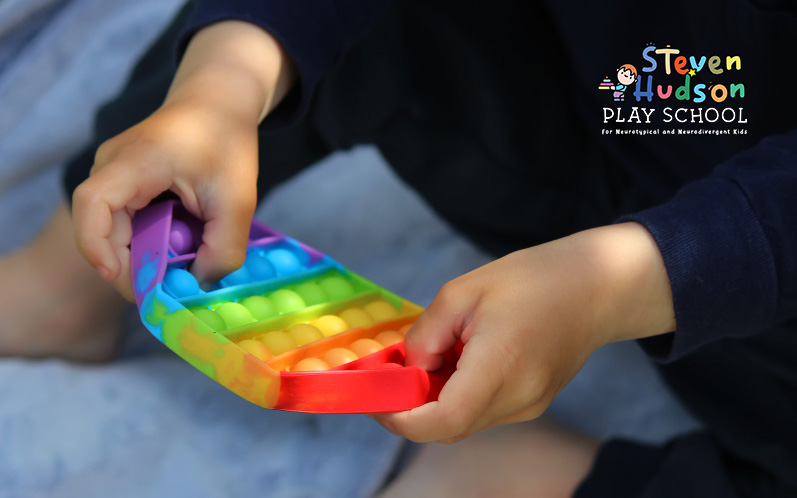As parents, one of our greatest aspirations is to provide our children with the best possible start in life. This often leads us to consider playschool, a vibrant world of colors, sounds, and new experiences. For many, it’s a rite of passage, a gentle introduction to formal education. But for parents of neurodivergent children or those with special needs, the decision to send their loved ones to playschool takes on an even deeper, more profound significance. It becomes a priceless investment in their child’s future, a recognition of the paramount importance of early childhood education.
More Than Just Play: The Foundations of Early Childhood Education
Playschool, often referred to as preschool or nursery school, is far more than just a place for kids to “play.” It’s a carefully designed environment that fosters holistic development across several crucial domains:
- Social-Emotional Development: Children learn to share, take turns, empathize with others, and navigate their emotions. They build friendships, resolve conflicts, and develop a sense of belonging – vital skills for life. Research from organizations like the National Association for the Education of Young Children (NAEYC) consistently emphasizes the critical role of early learning environments in fostering healthy social and emotional growth.
- Cognitive Development: Through age-appropriate activities, children are introduced to foundational concepts like numbers, letters, shapes, and colors. They develop problem-solving skills, critical thinking, and a thirst for knowledge. Studies published in journals focusing on child development, such as Child Development or Early Childhood Research Quarterly, frequently detail how structured play and early learning activities stimulate cognitive abilities.
- Language and Communication: Exposure to new vocabulary, storytelling, and interactive discussions expands their linguistic abilities, improving both expressive and receptive language. The American Speech-Language-Hearing Association (ASHA), among other professional bodies, highlights the early years as a crucial period for language acquisition and the benefits of rich linguistic environments.
- Physical Development: Fine motor skills are honed through drawing, cutting, and building, while gross motor skills are developed through active play, running, and jumping. Developmental pediatric associations and occupational therapy research underscore the importance of these activities for overall physical well-being and readiness for school.
These foundational skills are crucial for all children, setting the stage for success in kindergarten and beyond. Longitudinal studies, like those often cited by the Heckman Equation (pioneered by Nobel laureate James Heckman), demonstrate that high-quality early childhood education leads to significant long-term benefits, including higher educational attainment, increased earnings, and improved health outcomes.

Early Childhood Education: A Game-Changer for Neurodivergent Children and Those with Special Needs
For neurodivergent children, such as those with Autism Spectrum Disorder (ASD), ADHD, dyslexia, or other learning differences, and for children with other special needs, early childhood education isn’t just beneficial – it can be a true game-changer. Here’s why:
1. Early Identification and Intervention: A skilled playschool environment can be instrumental in the early identification of developmental differences. Educators trained to observe children’s behavior and learning patterns can spot red flags that might otherwise go unnoticed, prompting timely intervention and support services. The Centers for Disease Control and Prevention (CDC) and organizations like Autism Speaks consistently advocate for early screening and intervention, citing robust evidence that earlier support leads to better developmental outcomes for children with special needs. In the Philippines, local centers like ALRES Philippines and A Child Can Foundation are examples of institutions dedicated to providing early intervention and specialized programs for children with diverse needs, underscoring the local commitment to early identification.
2. Structured and Predictable Environments: Many neurodivergent children thrive in structured and predictable environments. Playschools often provide routines, visual schedules, and clear expectations, which can help reduce anxiety and promote a sense of security for children who may struggle with transitions or unexpected changes. Behavioral psychology research and special education literature frequently support the use of predictable routines for children with conditions like ASD.
3. Targeted Skill Development: Reputable playschools, especially those with inclusive programs or dedicated special education support, can offer individualized attention and tailored activities to address specific developmental delays or challenges. This might include speech therapy exercises, occupational therapy activities integrated into play, or social skills training. Professional bodies like the Council for Exceptional Children (CEC) publish guidelines and research on effective early intervention strategies for diverse learning needs.
4. Social Skill Building in a Supportive Setting: For neurodivergent children who may find social interactions challenging, playschool offers a safe and supported space to practice these skills. Under the guidance of experienced educators, they can learn about social cues, appropriate communication, and reciprocal play, building confidence and fostering positive peer relationships. Studies on social-emotional learning (SEL) in inclusive settings, often found in educational psychology journals, highlight the benefits of peer interaction for social development.
5. Sensory Integration Opportunities: Many playschools incorporate a variety of sensory experiences through play, which can be particularly beneficial for children with sensory processing differences. From sand and water play to tactile toys and movement activities, these opportunities help children regulate their sensory systems and engage more effectively with their environment. Occupational therapy research, particularly in the field of sensory integration, provides the theoretical and empirical basis for these practices.
6. Parental Support and Community: Playschools often serve as a vital support network for parents. For parents of neurodivergent children, connecting with other families facing similar journeys can be incredibly empowering. Educators can also provide valuable insights, strategies, and resources, becoming partners in their child’s developmental journey. Family support organizations and research on parent engagement in early intervention consistently demonstrate the positive impact of this collaborative approach.

The Power of Inclusion and Philippine Initiatives
Ideally, playschools should strive for inclusive environments where children of all abilities learn and grow together. This not only benefits neurodivergent children by providing them with peer models and a sense of belonging, but it also enriches the experience for neurotypical children, fostering empathy, understanding, and acceptance of diversity from an early age. The principles of inclusive education, as articulated by organizations like UNESCO and national special education laws, emphasize the profound advantages of integrated learning environments for all.
In the Philippines, the commitment to inclusive education for children with disabilities, including neurodivergent children, is enshrined in law. Republic Act No. 11650, also known as “An Act Instituting a Policy of Inclusion and Services for Learners with Disabilities in Support of Inclusive Education,” (often referred to as the Inclusive Education Act) mandates the provision of necessary support and services for learners with disabilities in the basic education system. This act, alongside the Early Childhood Care and Development (ECCD) Act (Republic Act No. 8980), forms a crucial framework for ensuring that young Filipino children, including those with special needs, have access to quality early learning opportunities. The Department of Education (DepEd) continues to work towards strengthening its Special Education (SPED) programs and inclusive education initiatives, aiming for a more equitable and accessible education system for all children. Organizations like Save the Children Philippines also actively support early learning initiatives, particularly for marginalized children, emphasizing inclusive practices.
Sending a loved one to playschool, especially when they are neurodivergent or have special needs, is a decision rooted in hope and foresight. It’s an affirmation that every child deserves the opportunity to reach their full potential. The early childhood years are a critical window for development, and investing in quality playschool education is a testament to a parent’s unwavering belief in their child’s ability to learn, grow, and thrive. It’s not just about preparing them for school; it’s about equipping them with the essential tools for a fulfilling and independent life.


